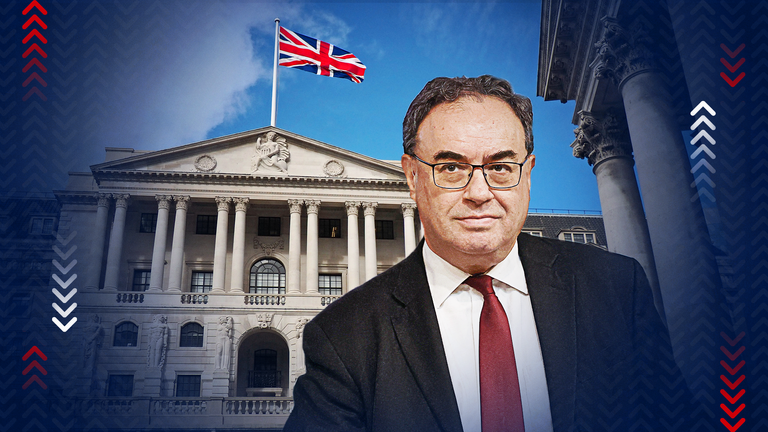The Bank of England has opted to keep interest rates steady at 4.5%, citing growing economic uncertainty linked to global trade tensions and domestic fiscal policies.
The decision reflects a cautious approach as policymakers assess inflationary pressures and potential risks to economic growth.
The central bank’s Monetary Policy Committee (MPC) voted 8-1 in favor of holding rates, with external member Swati Dhingra being the sole advocate for a 0.25% rate cut. She argued that lower rates could help support demand amid signs of economic slowdown. However, the majority of committee members remain cautious, signaling that while rate cuts may be possible later in the year, now is not the time for immediate action.
Governor Andrew Bailey reinforced this stance, emphasizing that future policy decisions will be guided by incoming economic data. “We recognize the need to support growth, but we must also ensure that inflation continues its downward trajectory,” Bailey stated.
Recent economic data showed a 0.1% contraction in the UK economy for January, contradicting expectations of slight growth. Despite this, the Bank revised its first-quarter GDP forecast upward, now expecting 0.25% growth.
Inflation remains a primary concern, currently standing at 3%, above the Bank’s 2% target. Rising energy prices, wage growth, and tax changes set to take effect in April are expected to add further inflationary pressure. The Bank acknowledged that while inflation has eased from its peak, underlying price pressures remain a risk.
The decision to hold rates comes amid increasing concerns over global trade disruptions. Recent policy moves in the United States, including tariffs and trade restrictions, have created further volatility in global markets.
Also Read; Putin Agrees to Pause Strikes After
Trump Call
Analysts warn that these developments could slow growth and raise costs for UK businesses, further complicating the economic outlook.
Additionally, domestic fiscal changes—including higher national insurance contributions and an increased minimum wage—are adding to operational costs for companies. Business groups have cautioned that these factors could lead to hiring freezes and reduced investment.
The Bank has signaled that while interest rate cuts could be on the horizon, it will proceed with caution. Financial markets are currently pricing in a potential rate reduction by May, but policymakers stress that any changes will depend on inflation trends and broader economic conditions.







